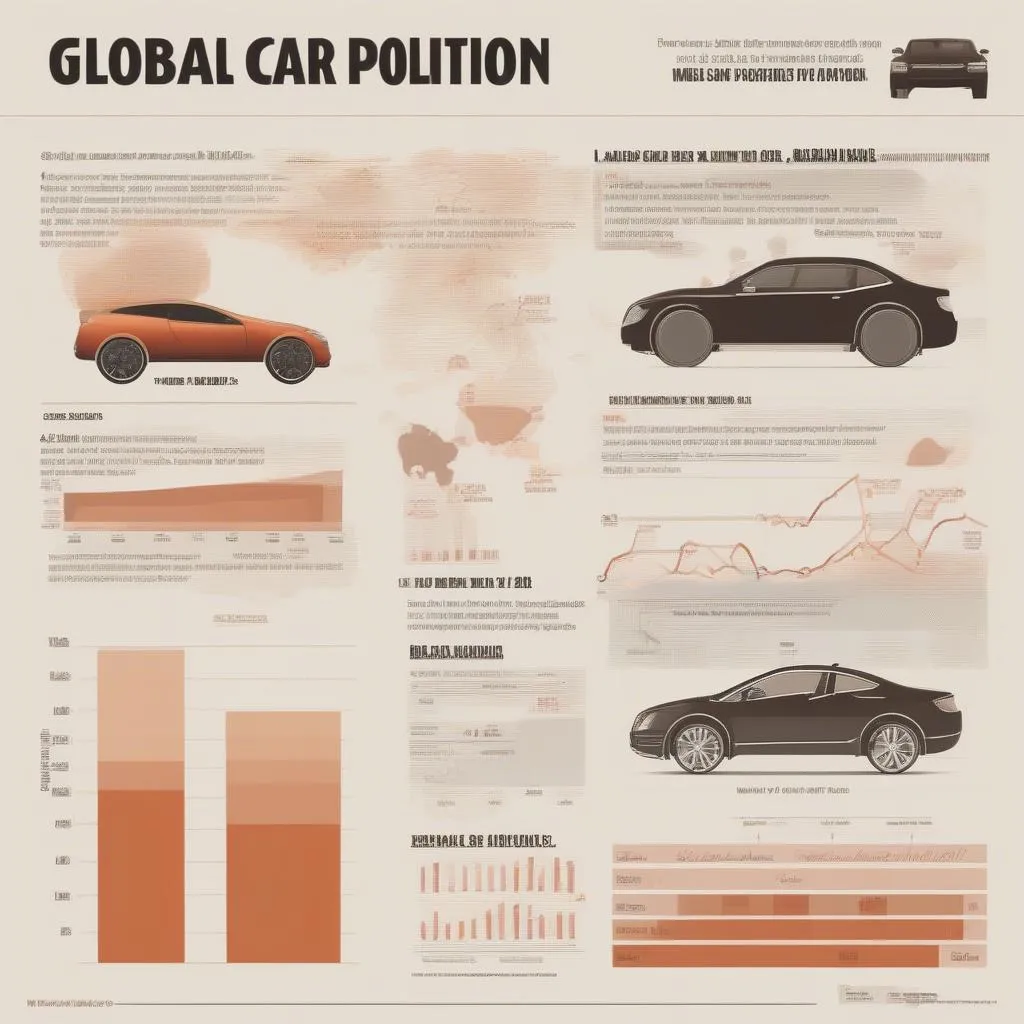Imagine driving through a bustling city, surrounded by a sea of cars. You might wonder, how many cars are there in the world? This question has intrigued people for decades, especially as the automotive industry continues to grow.
The Importance of Understanding the Global Car Population
This question isn’t just a curiosity. Understanding the number of cars in the world is crucial for a variety of reasons:
- Environmental Impact: As cars become more common, the number of vehicles on the road directly affects air pollution and climate change. We need to understand the scale of the problem to create effective solutions.
- Traffic Management: With more cars on the road, congestion and traffic accidents become increasingly common. Accurate data about the car population helps city planners develop better infrastructure and traffic management strategies.
- Economic Implications: The automotive industry is a global powerhouse, employing millions of people and generating trillions of dollars in revenue. Understanding the car population helps us analyze market trends and economic growth.
Finding the Answer: It’s Not Easy!
Determining the exact number of cars in the world is a challenging task. There’s no central authority that keeps track of every single car, and data collection methods vary across countries.
- Estimates Vary Widely: Different organizations use different data sources and methodologies, resulting in a wide range of estimates. Some experts suggest there are over 1 billion cars in the world, while others place the number closer to 2 billion.
- Registration Data: A common approach is to rely on registration data from motor vehicle authorities. However, this data is not always comprehensive and may not reflect the number of cars in circulation, especially in developing countries where registration requirements may be less stringent.
- Statistical Modelling: Other methods involve statistical modeling based on population data, economic indicators, and vehicle production figures. While this can provide valuable insights, it still relies on estimates and assumptions that may not fully capture the reality.
What We Know: The Global Car Population is on the Rise
Despite the lack of precise figures, we can confidently say that the number of cars worldwide is steadily increasing. This growth is driven by several factors, including:
- Rising Middle Class: In emerging economies, like China and India, a growing middle class is driving increased demand for personal vehicles.
- Technological Advancements: The development of new technologies, like electric cars, has made vehicles more affordable and accessible to a wider range of people.
- Urbanization: As more people move to cities, the need for personal transportation increases.
The Impact of Vehicle Growth on Our Cities
The rapid growth of the global car population has a direct impact on our cities.
- Congestion: Traffic jams become more common as the number of vehicles on the road increases.
- Air Pollution: Exhaust emissions from cars contribute to air pollution, harming public health and the environment.
- Limited Parking: Increased car ownership puts a strain on parking spaces, leading to higher parking fees and difficulty finding spots.
Solutions for the Future: Sustainable Transportation
It’s clear that we need to find sustainable solutions to address the challenges posed by the growing car population.
- Public Transportation: Investing in high-quality and efficient public transportation systems can reduce reliance on personal cars.
- Active Transportation: Promoting walking, cycling, and other forms of active transportation can reduce traffic congestion and improve public health.
- Electric Vehicles: Shifting towards electric vehicles can help reduce air pollution and dependence on fossil fuels.
The Future of the Car
While the number of cars on the road continues to increase, it’s important to consider the long-term implications. The future of the car is likely to be shaped by technological advancements, environmental concerns, and changing consumer preferences. We can expect to see more electric vehicles, autonomous cars, and smart cities that integrate transportation systems to reduce our reliance on individual cars.
 Global Car Population Statistics
Global Car Population Statistics
FAQs
Q: What are the most popular car brands in the world?
A: Some of the most popular car brands globally include Toyota, Volkswagen, Honda, Ford, and General Motors.
Q: Which countries have the highest number of cars per capita?
A: The United States, Canada, and Australia have some of the highest car ownership rates in the world.
Q: Are there any efforts to reduce car dependency?
A: Many cities are implementing policies and initiatives to reduce car dependency. Examples include bike-sharing programs, expansion of public transportation, and car-free zones.
Q: Is the car industry still growing?
A: The automotive industry continues to evolve, with growth in areas like electric vehicles and autonomous driving technology. However, the traditional car industry is facing challenges as consumer preferences shift and regulations tighten.
Q: What are the main challenges facing the car industry today?
A: Some of the challenges facing the car industry include the transition to electric vehicles, the development of autonomous driving technology, and the need to address environmental concerns.
Q: What is the future of car ownership?
A: The future of car ownership is uncertain. Some experts predict that car ownership will decline as shared mobility services and autonomous vehicles become more prevalent. However, others believe that car ownership will continue to be important for personal transportation and flexibility.
Q: How can I learn more about the automotive industry?
A: You can learn more about the automotive industry by visiting websites like Autoblog, Car and Driver, and Edmunds. You can also read industry reports and articles from organizations like J.D. Power, IHS Markit, and the International Organization of Motor Vehicle Manufacturers (OICA).
Looking Ahead: A Sustainable Future
As we navigate the growing global car population, it’s crucial to prioritize sustainable solutions. By investing in public transportation, promoting active transportation, and embracing new technologies, we can create a future where mobility is more accessible, equitable, and environmentally friendly.
For expert assistance with diagnosing and repairing your car’s electrical system, contact us at WhatsApp: +84767531508. We are here to help you 24/7.


